Alumni Perspective: Bauer & Wurst
Two careers built on a strong, interdisciplinary foundation
[[ PAGE BANNER: see the home page instructions for adding new images. Image should be 864 pixels wide by any height. ]]
An interview with Renato Bauer and Jacqueline Wurst
Q
A
What made you both choose TPCB?
Jackie: When I first visited the TPCB campus, it stood out among the more traditional chemistry graduate programs I had visited. There were a number of faculty that I could envision working for, with their research varying from synthetic chemistry to mass spectroscopy to genetics. The flexibility and range of possibilities, and the potential for research collaborations was exciting to me.
Renato: What I liked about TPCB were the large number of research paths available. TPCB offered flexibility to move easily along the chemistry–biology–medicine spectrum as a researcher. For me, I didn’t really know at first how I wanted to define myself scientifically. TPCB helped me figure that out, and I became a card-carrying synthetic organic chemist. Finally, the opportunity to live and work (and play) in a place like Manhattan was really interesting to me. It turned out to be a really fun place to be a graduate student and scientist.
Q
A
How did your experience in TPCB impact your subsequent job searches?
Jackie: Your graduate school years are really formative during your development as a scientist. While I did organic synthesis in Derek’s lab, I gained an appreciation of the broader applications of my research because I communicated with people in other research areas within TPCB. This big picture perspective gave me confidence as I moved to a postdoc in chemical biology, and then when I finally decided on a job in pharma, where it’s critical to understand how chemistry is just one part of bringing a drug to market.
Renato: When it’s time to find a job in industry, academia, or an alternative career, you really want to be up-to-date on what the highest-profile labs are working on. At TPCB, we all benefited from the fact that top US and international scientists were invited to campus on a weekly basis for seminars. It wasn’t uncommon to take a speaker to lunch before their seminar, or to meet one-on-one with them to talk science. Having three major research institutions located within a few blocks of one another, from purely a numbers perspective, really helps to draw important people to the TPCB campus. As an added benefit, when it was time to decide on a lab to do my postdoctoral tour, it was nice that I had already met face-to-face with many prospective advisors.
Q
A
What is your focus in your professional life right now?
Renato: I was fortunate to land an exciting position at Eli Lilly as a research scientist. I am working on trying to solve problems in cancer, using chemistry to synthesize small molecules as leads at the early stages of drug development. The work is tremendously rewarding—and it’s never boring.
Jackie: I am also working at Eli Lilly, in the field of endocrinology. I’m working on problems related to metabolic diseases. There are so many big problems to be solved, and as a chemist we are integral to addressing them. It’s really exciting to design molecules, to synthesize them, and to then wonder whether you just created a compound that will improve the health of millions of people.



